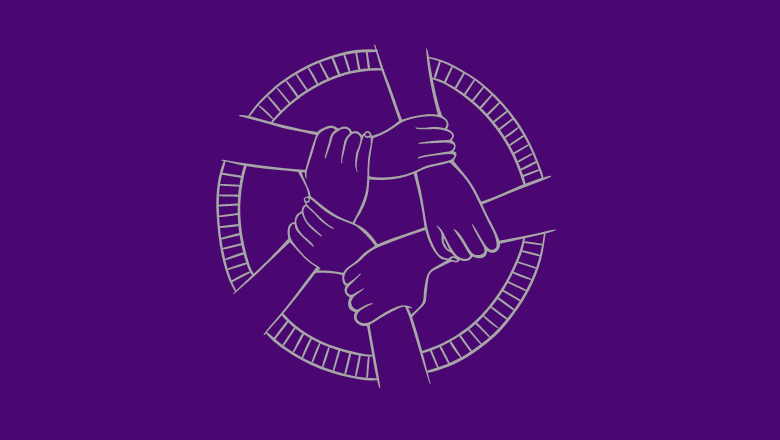Menu
April 9, 2024

Managing developers in remote teams requires careful consideration and implementation of best practices to ensure productivity and success.
Table of Contents
ToggleWhen managing remote teams of developers, it is important to hire for or cultivate traits like effective communication, independence, humility, and a growth mindset. These traits are crucial for remote work success, as they enable developers to thrive in a remote environment and contribute effectively to the team’s goals.
Effective communication is paramount when working remotely. Without face-to-face interactions, developers must rely on clear and concise communication to collaborate effectively. This includes actively listening, expressing ideas and concerns, and ensuring that messages are delivered with clarity and transparency.
Independence is another key trait for remote work. Remote developers must be self-motivated and capable of managing their time and tasks efficiently. They need to take ownership of their work and be proactive in seeking solutions to challenges they encounter. This level of independence allows them to meet deadlines and contribute to the team’s success.
A growth mindset is essential for remote developers to continuously learn and adapt to new technologies and challenges. Embracing a growth mindset means being open to feedback, seeking opportunities for personal and professional growth, and embracing change. Remote developers with a growth mindset are more likely to thrive in a dynamic work environment and contribute to the team’s overall success.

Over-communication is key when managing remote teams, and utilizing video and audio calls/conferences as well as project management tools like Slack and Trello can help ensure team alignment and productivity.
Regular and effective communication is crucial for remote teams to stay connected and work collaboratively towards shared goals. By utilizing video and audio calls/conferences, managers can capture social cues and maintain strong communication, despite the physical distance. This allows for real-time interaction and fosters a sense of togetherness, enhancing team alignment.
In addition to video and audio calls, project management tools like Slack and Trello provide a centralized platform for seamless communication and collaboration. These tools enable teams to have discussions, share updates, and manage tasks efficiently, ensuring that everyone is on the same page. With features such as chat, file sharing, and task assignment, remote teams can stay organized and work together effectively.

Regular meetings are crucial for remote teams to discuss goals, KPIs, and any issues affecting productivity, and it is especially important to utilize video conferencing tools to capture social cues and maintain effective communication. These meetings provide an opportunity for team members to align their efforts, address any challenges, and ensure everyone is on the same page.
During these meetings, it is essential to create an inclusive environment where all team members feel comfortable speaking up and sharing their thoughts. Encourage open dialogue and active participation to foster collaboration and collective problem-solving. Utilizing video conferencing tools allows for face-to-face interaction, enabling team members to pick up on non-verbal cues and build stronger connections.
To make the most of these meetings, it is helpful to have an agenda prepared in advance. This agenda should outline the topics to be discussed and provide a clear structure for the meeting. It ensures that all necessary information is covered and keeps the meeting focused and productive. Additionally, taking meeting minutes and assigning action items helps to track progress and hold individuals accountable for their responsibilities.
![]()
Implementing workflows and systems is crucial when managing remote teams, as it ensures documentation and tracking of project progress, and embracing the Agile methodology enables continuous feedback and improvement. These practices are essential for maintaining productivity and achieving success in remote team management.
One effective system for progress tracking is the use of project management tools such as Jira or Asana. These tools allow teams to create tasks, assign responsibilities, and monitor the status of each task. By having a centralized platform for project management, both managers and developers can easily keep track of deadlines, dependencies, and overall progress.
Additionally, documenting processes and workflows is vital for ensuring consistency and collaboration within remote teams. Creating a knowledge base or a shared document repository enables developers to access relevant information, best practices, and guidelines. This promotes transparency and helps new team members quickly onboard and understand existing projects.
Furthermore, embracing the Agile methodology provides an iterative approach to software development, where feedback from stakeholders and team members is continuously incorporated into the product. This methodology allows for flexibility, adaptability, and a focus on delivering value to end-users.

To ensure the long-term success of your remote team, it is essential to invest in the professional growth of your developers by providing opportunities for continuous learning and staying up-to-date with new technologies. The world of software development is constantly evolving, with new frameworks, programming languages, and tools emerging regularly. By encouraging continuous learning, you enable your developers to expand their skill sets and adapt to industry trends, resulting in more innovative and efficient solutions.
One effective way to promote continuous learning is to provide access to online courses, webinars, and workshops that cover relevant topics. Platforms like Udemy, Coursera, and LinkedIn Learning offer a wide range of courses on programming, software engineering, and emerging technologies. Encourage your developers to explore these resources and dedicate time for self-study.
Additionally, organizing internal knowledge-sharing sessions or hosting guest speakers can foster peer-to-peer learning and provide exposure to different perspectives. This can be done through virtual presentations or interactive discussions using video conferencing tools. Creating a culture of learning and knowledge sharing within your remote team will not only enhance their skills but also contribute to a collaborative and supportive work environment.

Building a strong company culture within your remote team is crucial for fostering a sense of connection and community, even when team members are physically apart. In a remote work setting, it’s important to create an environment where employees feel valued, included, and motivated. This helps to enhance collaboration, productivity, and overall job satisfaction.
One effective way to foster a strong company culture is by promoting open and transparent communication. Encourage team members to share their ideas, challenges, and successes. This can be achieved through regular virtual meetings, where everyone has an opportunity to contribute and actively participate.
Another way to strengthen company culture in remote teams is by promoting team-building activities. These can include virtual team-building games, collaborative projects, or even online social gatherings. By creating opportunities for team members to interact and get to know each other on a personal level, you can foster a sense of camaraderie and build strong relationships.
Effective management of remote developer teams requires clear communication, well-defined workflows, continuous learning, and a strong company culture. By implementing these best practices, managers can ensure the productivity and success of their remote teams.
In order to achieve success when managing remote teams of developers, it is important to hire individuals with or cultivate traits such as effective communication, independence, humility, and a growth mindset.
Managing projects in remote teams requires effective coordination and control to ensure successful outcomes. With team members working from different locations, it’s crucial to establish clear communication channels and implement efficient project management strategies.
One key aspect of project management in remote teams is over-communication. By fostering regular and open communication, team members can stay aligned and informed about project progress. Video and audio calls/conferences serve as valuable tools to enable real-time collaboration and maintain strong communication. Additionally, project management tools like Slack and Trello can be utilized to streamline workflows, track tasks, and ensure everyone is on the same page.
Another vital component of remote project management is the organization of regular meetings. These meetings provide a platform for discussing goals, key performance indicators (KPIs), and any challenges that may be hindering productivity. Video conferencing tools play a significant role in capturing social cues and ensuring effective communication among team members.
When managing projects remotely, it’s essential to implement workflows and systems for progress tracking. Documentation is crucial for maintaining transparency and accountability within the team, and embracing the Agile methodology can facilitate continuous improvement. By adopting an Agile approach, teams can receive valuable feedback, make adjustments as needed, and deliver high-quality products.
Investing in the professional growth of remote developers is also paramount. Providing opportunities for continuous learning and keeping up with new technologies ensures that team members remain skilled and adaptable. This not only benefits individual developers but also contributes to the success of the entire team and project.
https://www.pluralsight.com/blog/teams/7-tips-for-managing-software-developers-effectively
About the author: Jacob Tenwick
Avid business developer and development manager
Input your search keywords and press Enter.